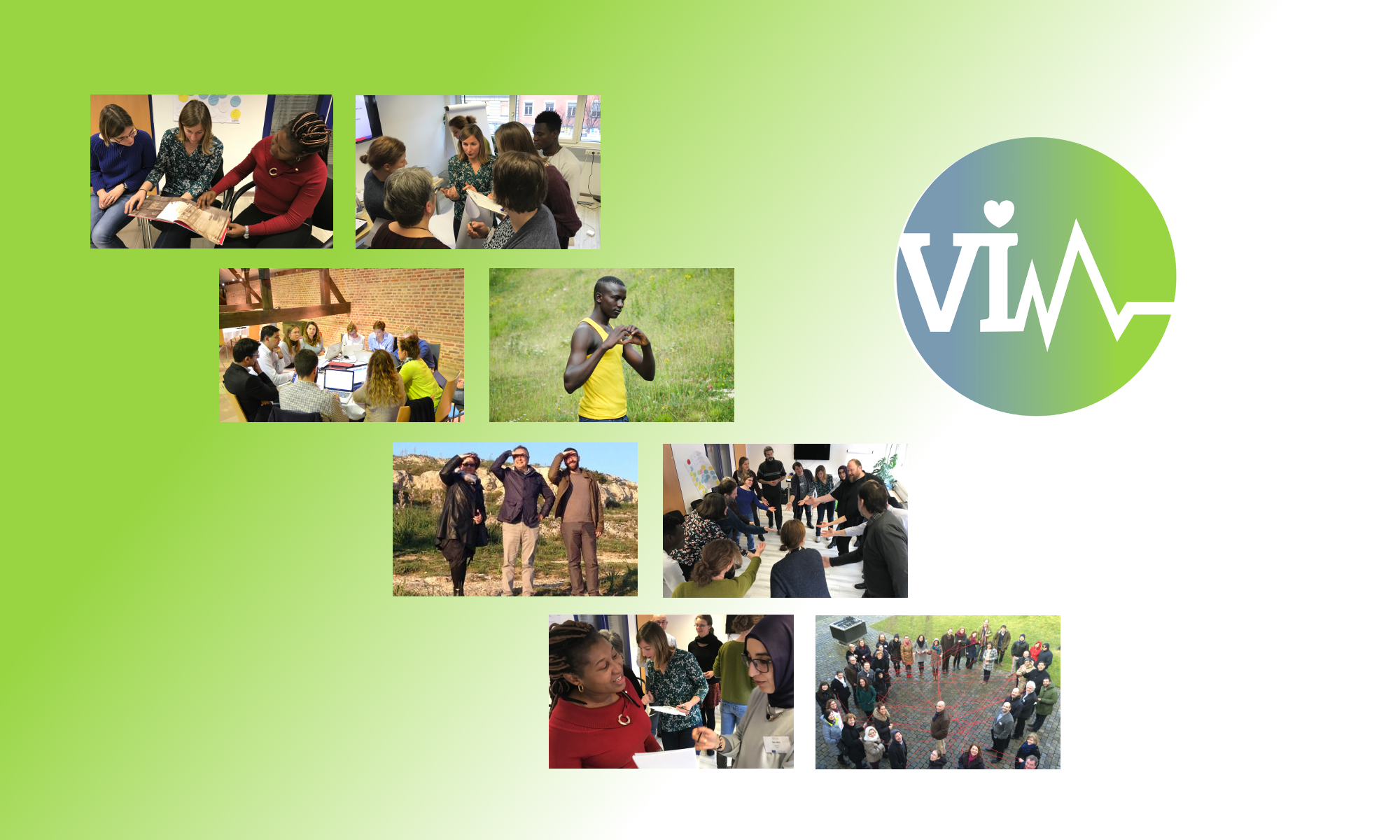 The fifth newsletter tells about the final conference that took place in Athens as well as about the findings and results of the national pilots that involved all in all 55 educators and 500 migrants and refugees in the partner countries. Their feedback was gathered by means of questionnaires and direct talks – We are happy to announce that is was very positive. Read more in our newsletter.
The fifth newsletter tells about the final conference that took place in Athens as well as about the findings and results of the national pilots that involved all in all 55 educators and 500 migrants and refugees in the partner countries. Their feedback was gathered by means of questionnaires and direct talks – We are happy to announce that is was very positive. Read more in our newsletter.
Health Literacy as a key to integration
 The VIM team is currently preparing the final conference in Athens on 10th of October. Its motto is “Health Literacy as a key to integration”. It will be hold in the premises of INNOVATHENS Hub.
The VIM team is currently preparing the final conference in Athens on 10th of October. Its motto is “Health Literacy as a key to integration”. It will be hold in the premises of INNOVATHENS Hub.
Please find the agenda here.
Save the date – Final conference in Athens
 The VIM consortium is waiting for you in Athens on 10th of October, 2019 at INNOVATHENS.
The VIM consortium is waiting for you in Athens on 10th of October, 2019 at INNOVATHENS.
The VIM consortium invites you to the final conference of the VIM project. The conference will be hosted by our Greek partner KMOP on 10th of October, 2019.
Apart from presenting the main outcomes and lessons learnt in terms of implementing the easy-to use micro-learning and information units for health promotion, we will give space and time for discussions, exchanges, workshops, and networking, so that all participants can be part of the conference processes.
Newsletter 4
 The VIM partners have developed a Quality Badge for all those organisations that promote health education for migrants and want to show it to their clients, learners, other training providers, funding authorities, the broad society, and other interest groups.
The VIM partners have developed a Quality Badge for all those organisations that promote health education for migrants and want to show it to their clients, learners, other training providers, funding authorities, the broad society, and other interest groups.
Find out all main facts in our fourth newsletter that you can download here.
Get the Quality Badge
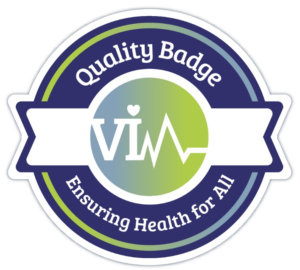 Do you represent a European organisation that promotes health education for migrants? Let your stakeholders know about it and use the VIM Quality Badge!
Do you represent a European organisation that promotes health education for migrants? Let your stakeholders know about it and use the VIM Quality Badge!
The VIM Quality Badge is a tangible label designed to convey the engagement of adult educators and training providers that have embedded health prevention and health education elements in training courses with migrants in line with the VIM approach. Find out more!
Assessing learning outcomes with LEVEL5
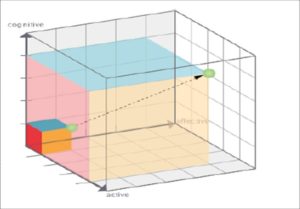 VIM makes use of the LEVEL5 system which is specifically designed to assess personal, social and organisational competence developments in rather non- and informal learning settings. It is based on a 3-dimensional approach to validate cognitive, activity related and affective learning outcomes – the LEVEL5 cube.
VIM makes use of the LEVEL5 system which is specifically designed to assess personal, social and organisational competence developments in rather non- and informal learning settings. It is based on a 3-dimensional approach to validate cognitive, activity related and affective learning outcomes – the LEVEL5 cube.
In VIM it will be used to assess trainers’ competence on “Facilitating learning processes to promote health awareness” and learners’ health care competence.
Multiplier Events in partner organisations
 Each VIM partner is organising a multiplier event in these days. The aim is to make interested trainers familiar with the VIM approach and the developed materials provided on the VIM Hub.
Each VIM partner is organising a multiplier event in these days. The aim is to make interested trainers familiar with the VIM approach and the developed materials provided on the VIM Hub.
If you are interested in joining such an event, please address the partner organisation of your country and ask for their events.
VIM Hub available now
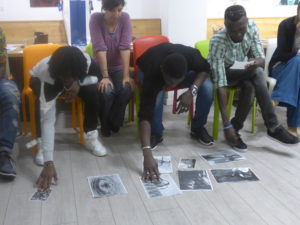 The VIM team is happy to announce that the VIM online hub (educational resources) is available now in English. It offers training units with activities on different health topics as well as further resources and interesting links to deepen the knowledge on specific issues related to health.
The VIM team is happy to announce that the VIM online hub (educational resources) is available now in English. It offers training units with activities on different health topics as well as further resources and interesting links to deepen the knowledge on specific issues related to health.
The Hub is right now being translated and will be available in all partner languages within the next few weeks.
Newsletter 3
 The third newsletter presents the training offer for adult educators who wish to embed small training units – that we simply call “activities” as these shall be interactive and shall involve migrants and refugees in all kind of playful, discovery oriented and holistic activities that aim to improve their health literacy. Get the newsletter here.
The third newsletter presents the training offer for adult educators who wish to embed small training units – that we simply call “activities” as these shall be interactive and shall involve migrants and refugees in all kind of playful, discovery oriented and holistic activities that aim to improve their health literacy. Get the newsletter here.
VIM training offer
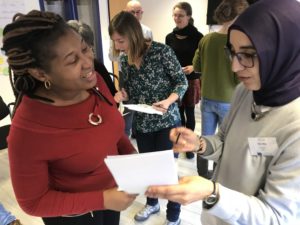 The VIM training offers small training units called simply “activities” as these shall be interactive and shall involve migrants and refugees in all kind of playful, discovery oriented and holistic activities. These are clustered into the following main categories:
The VIM training offers small training units called simply “activities” as these shall be interactive and shall involve migrants and refugees in all kind of playful, discovery oriented and holistic activities. These are clustered into the following main categories:
- Different conceptions of health, illness and cure based on culture and religion
- Mental well-being
- Physical well-being
- Access to the new health services – obstacles and problems
- Sex/sexuality, pregnancy and childbirth
- Communication
Each of the six categories provides approx. ten different activities – these vary in terms of their duration, group of learners, equipment needed. They all have in common that they can be implemented in all kind of adult education courses by educators that are not health experts.
